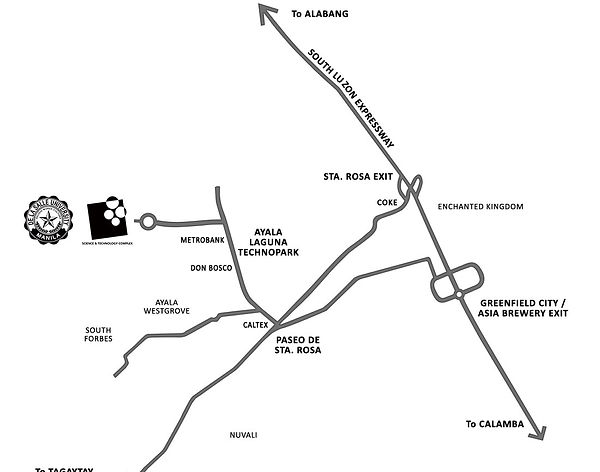
ABOUT THE FOUNDER

Founder of the Institute of the Brothers of the Christian Schools,
Patron of Christian Teachers.
Born at Reims, John Baptist de La Salle received the tonsure at age eleven and was named Canon of the Reims Cathedral at sixteen. Though he had to assume the administration of family affairs after his parents died, he completed his theological studies and was ordained a priest on April 9, 1678.Two years later he received a doctorate in theology.
Meanwhile he became tentatively involved with a group of rough and barely literate young men in order to establish schools for poor boys. At that time a few people lived in luxury, but most of the people were extremely poor: peasants in the country, and slum dwellers in the towns. Only, a few could send their children to school; most children had little hope for the future.
Moved by the plight of the poor who seemed so “far from salvation” either in this world or the next, he determined to put his own talents and advanced education at the service of the children “often left to themselves and badly brought up.” To be more effective, he abandoned his family home, moved in with the teachers, renounced his position as Canon and his wealth, and so formed the community that became known as the Brothers of the Christian Schools.
His enterprise met opposition from the ecclesiastical authorities who resisted the creation of a new form of religious life, a community of consecrated laymen to conduct gratuitous schools “together and by association.” The educational establishment resented his innovative methods and his insistence on gratuity for all, regardless of whether they could afford to pay. Nevertheless De La Salle and his Brothers succeeded in creating a network of quality schools throughout France that featured instruction in the vernacular, students grouped according to ability and achievement, integration of religious instruction with secular subjects, well-prepared teachers with a sense of vocation and mission, and the involvement of parents.
In addition, De La Salle pioneered in programs for training lay teachers, Sunday courses for working young men, and one of the first institutions in France for the care of delinquents. Worn out by austerities and exhausting labours, he died at Saint Yon near Rouen early in 1719 on Good Friday, only weeks before his sixty-eighth birthday.
John Baptist de La Salle was a pioneer in founding training colleges for teachers, reform schools for delinquents, technical schools, and secondary schools for modern languages, arts, and sciences. His work quickly spread through France and, after his death, continued to spread across the globe. In 1900 John Baptist de La Salle was declared a Saint. In 1950, because of his life and inspirational writings, he was made Patron Saint of all those who work in the field of education. John Baptist de La Salle inspired others how to teach and care for young people, how to meet failure and frailty with compassion, how to affirm, strengthen and heal. At the present time there are De La Salle schools in 80 different countries around the globe.
ABOUT THE SCHOOL


De La Salle University is expanding the frontiers of academic excellence, continuing its legacy of path-breaking programs in a new and exciting learning environment within the urban-suburban mix of Sta. Rosa City.
The DLSU Science and Technology Complex.
Situated on a secured 50-hectare campus in Laguna, the DLSU Science and Technology Complex is envisioned to become a key resource for scientific advancements and technological innovations in the country, underscoring the Lasallian tradition that integrates faith and service through knowledge generation.
With the Complex’s proximity to Laguna Technopark that houses manufacturing giants, research collaborations with industrial neighbors can be made possible. DLSU’s partnerships with international institutions can also provide opportunities for S&T projects that are geared towards finding solutions to global challenges.
The campus is also accessible to and from nearby commercial districts such as Nuvali and Paseo de Sta. Rosa. Improved road infrastructure and public transport can also provide better commute to and from Metro Manila and nearby Tagaytay City. Free shuttle services at designated points in Manila will also be offered to all students and faculty.
With a comprehensive master plan in infrastructure development within a living, breathing environment, the campus is opening its doors for a brighter future.
Sources: www.dlsu.edu.ph/stc/



